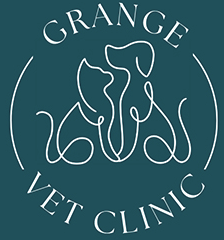Vaccinating Your Dog
A puppy’s first vaccination is at 6-8 weeks of age, followed by a booster vaccination 4 weeks later and the final vaccination 4 weeks later again. Your dog will require an annual booster vaccination from then on.
Your puppy is not completely covered until 2 weeks after their final puppy vaccination. It is then that they can socialise freely in public areas and with other animals on unknown vaccination status.
Canine vaccinations are known by the codes C3, C4 and C5. The virus’ that are commonly vaccinated against and their symptoms include:
- Parvovirus: causes potentially fatal diarrhoea, especially in puppies and dogs under 2 years
- Distemper: coughing, diarrhoea and sometimes twitching, seizures, loss of balance and blindness
- Hepatitis: vomiting, diarrhoea, abdominal pain and possible liver failure
- Parainfluenza: a viral disease causing a nasty cough
- Bordatella bronchiseptica: bacteria causing a harsh, dry cough and lethargy
Panainfluenza and Bordatella Bronchiseptica make up the two components of the virus commonly known as Kennel Cough.
Vaccinating Your Cat
A kitten’s first vaccination is at 6-8 weeks of age, followed by a booster vaccination 4 weeks later and a final booster 4 weeks later again. Your cat will require an annual booster vaccination from then on. Only 2 weeks after the final kitten vaccination should your kitten be allowed to go outside and socialise with other cats.
The main feline vaccinations are known by the codes F3 and F4. The virus’ that are commonly vaccinated against and their symptoms include:
- Enteritis (Feline Panleukopenia): can be very severe especially in unvaccinated kittens less than 12 months of age. It causes fever, vomiting, diarrhoea, liver failure and sudden death.
- Feline Calicivirus: is part of the cat flu which presents as sneezing, nasal congestion, discharge from the eyes and nose, fever and mouth ulcers in more severe cases.
- Feline Rhinotracheitis (Feline Herpes Virus): is another part of cat flu and can lead to permanent nasal and sinus infection.
- Chlamydia: is a bacterial disease causing conjunctivitis, respiratory disease and even problems with infertility and abortion.
- Feline Immunodeficiency Virus (FIV or Feline AIDS): Is a virus that suppresses the cats immune system, leaving them vulnerable to a host of different infections. There is no cure for this virus, therefore making it essential that your cat is protected by a vaccination if they EVER go outside.

